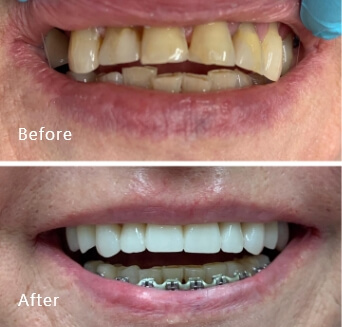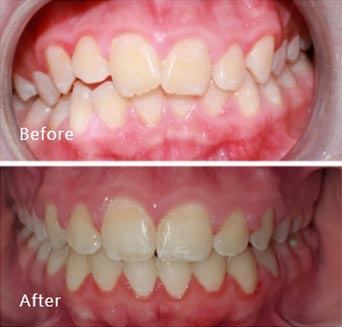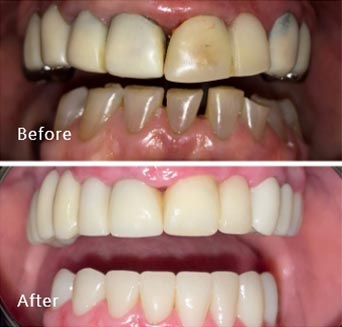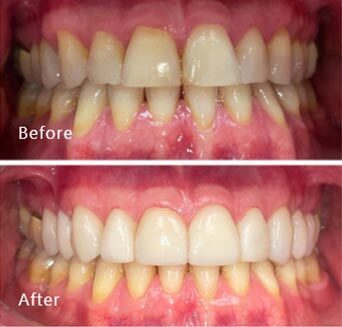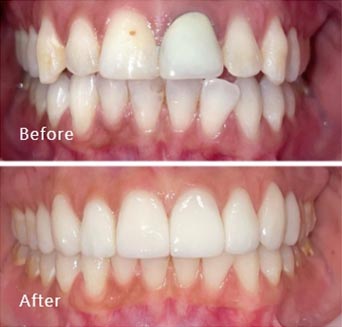Restore Your Jawbone Density and Prepare for Dental Implant Surgery
Do you dream of a complete, confident smile, but face the challenge of insufficient jawbone? At Royal Dental Care, home of the bestimplant dentist in Schaumburg, IL, we specialize in rebuilding the foundation for your future smile through advanced bone grafting procedures. Dental bone grafts have become a common procedure, especially for those looking to receive dental implants.
Discover how Dr. Troyan can help you achieve the strong, healthy jawbone needed for successfuldental implants and a lifetime of confident smiles. Serving individuals from the neighboring communities of Palatine, Hoffman Estates, and Roselle. Call us today at (847) 999-7620.
Why Choose Dr. Troyan for Your Local Dental Implant Care?
Choosing Dr. Troyan means selecting a dentist who prioritizes your long-term oral health and aesthetic goals. He takes a comprehensive approach to implant dentistry, considering not just the immediate tooth replacement but also the overall harmony of your smile and the health of your surrounding teeth and gums. This meticulous attention to detail is a hallmark of his practice.
Ready to take the next step towards a complete and confident smile with dental implants? Contact Royal Dental Care today to schedule your consultation with Dr. Troyan. Call us at (847) 999-7620. We proudly serve the Schaumburg, IL, community and welcome patients from surrounding areas seeking exceptional dental implant care.
What is Bone Grafting?
Bone grafting is a surgical procedure with the primary aim of rebuilding and augmenting bone in areas where it has been lost or is insufficient. Think of it as preparing fertile ground before planting a seed; a strong, healthy bone structure is essential for the long-term success and stability of dental implants. Bone grafts and bone graft substitutes serve as a filler and scaffold to facilitate bone formation and promote wound healing.
Candidacy for Bone Grafting Procedures at Royal Dental Care
Not everyone who experiences tooth loss will automatically require a bone graft. Candidacy for this procedure is determined through a comprehensive evaluation by Dr. Troyan at our Schaumburg, IL, dental office. Several factors are considered:
- Extent of Bone Loss: The primary indicator is the amount of jawbone that has resorbed. A bone graft is typically recommended if there isn’t enough bone height, width, or density to support a dental implant.
- Location of Missing Teeth: The specific location of the missing tooth or teeth can influence the need for grafting, as some areas of the jaw tend to experience more bone loss than others.
- Overall Health: Your general health plays a vital role in your ability to undergo and heal from any surgical procedure, including bone grafting. Dr. Troyan will review your medical history to assess potential risks or contraindications.
- Commitment to Oral Hygiene: Successful dental implants and the longevity of a bone graft rely heavily on diligent oral hygiene practices. Candidates should be committed to maintaining excellent oral health.
Benefits of Bone Augmentation for Dental Implants
Undergoing bone augmentation before receiving dental implants offers several significant advantages that contribute to the long-term success and health of your smile:
- Enhanced Implant Stability: The most crucial benefit is a solid and stable foundation for dental implants. Adequate bone volume and density allow the implant to integrate properly with the jawbone (osseointegration), ensuring its long-term stability and functionality.
- Improved Aesthetics: Bone grafting can help restore the natural contours of your jaw and face, preventing the sunken appearance after tooth loss. This contributes to a more aesthetically pleasing and youthful smile.
- Increased Treatment Options: For individuals with significant bone loss, bone grafting can make dental implants a viable treatment option where they might have previously been impossible. Bone grafting can also make you eligible for other restorative dental treatments, such as dental implants. This opens the door to a more permanent and natural-feeling tooth replacement solution.
- Support for Adjacent Teeth: A healthy jawbone supports not only the implants but also the surrounding natural teeth, helping prevent further bone loss and maintain overall oral health.
- Long-Term Success of Implants: By providing a strong foundation, bone grafting significantly increases the long-term success rate of dental implants, making it a worthwhile investment in oral health and well-being.
The Bone Grafting Process
Understanding the bone grafting process can help alleviate any anxieties you may have. Here’s a general overview of what you can anticipate at our Schaumburg, IL office:
- Comprehensive Evaluation: Your journey begins with a thorough examination by Dr. Troyan. This includes a review of your dental history, X-rays, and possibly a CT scan to assess the extent of bone loss and determine the most appropriate grafting approach.
- Anesthesia: Patient comfort is paramount. We will discuss anesthesia options with you, which may include local anesthesia, sedation, or general anesthesia, depending on the complexity of the procedure and your individual needs.
- Graft Placement: During the procedure, a small incision is made in the gum tissue to access the jawbone. The bone grafting material, which can be sourced from your own body, a donor, or synthetic materials, is carefully placed in the deficient area.
- Membrane Placement (If Necessary): In some cases, a collagen membrane may be placed over the graft to protect it and promote optimal healing.
- Suturing: The gum tissue is then carefully sutured closed.
- Healing Period: The healing time for a bone graft varies depending on the individual and the extent of the grafting. It typically takes several months for the new bone to integrate with the existing jawbone, creating a strong and stable foundation. The human body has the natural ability to regenerate natural bone tissue entirely, given the necessary space and support.
- Follow-Up Care: Dr. Troyan and our team will provide detailed post-operative instructions to promote healing and minimize discomfort. Regular follow-up appointments will be scheduled to monitor your progress.
Aftercare for Jawbone Augmentation
Dr. Troyan and our dental team will provide you with detailed, personalized instructions; however, these general guidelines will help you understand what to expect and how to care for your surgical site in the initial days and weeks.
Immediate Post-Operative Care (First 24-48 Hours)
- Managing Bleeding: Some oozing or mild bleeding is normal for the first 24 hours. Apply gentle pressure to the surgical area with a moist gauze pad for 20-30 minutes at a time. Avoid frequent changes of the gauze unless it is saturated.
- Controlling Swelling: Swelling is a natural response to surgery. Apply an ice pack wrapped in a cloth to the outside of your face near the surgical area for 15-20 minutes at a time, several times a day, for the first 24-48 hours.
- Pain Management: Take any prescribed pain medication as directed by Dr. Troyan. Over-the-counter pain relievers like ibuprofen or acetaminophen can also be effective for mild discomfort. Avoid aspirin, as it can increase bleeding.
- Rest and Limited Activity: Get plenty of rest and avoid strenuous activities for at least a few days following surgery.
- Dietary Guidelines: Stick to a soft diet that requires minimal chewing. Avoid hot, spicy, or hard foods that could irritate the surgical site.
- Oral Hygiene: Be very gentle with your mouth. Avoid brushing directly on the surgical site for at least a week.
Real Patients. Real Results.
Frequently Asked Questions
No, bone grafting techniques don’t hurt. Local anesthesia is typically administered during the procedure to numb the area before oral and maxillofacial surgery. Post-operative discomfort is usually mild and can be managed with over-the-counter pain medication. Dr. Troyan and our team will provide detailed instructions to minimize any discomfort.
The entire process, from the initial consultation to the completion of new bone growth and successful bone healing, can take several months. The healing time for the bone graft typically ranges from three to six months, depending on the extent of the graft and individual healing abilities.
Several types of bone grafting materials are available, including autograft (bone from your own body), allograft (donor bone), xenograft (animal bone), and synthetic bone graft materials. Allografts are harvested from individuals other than the one receiving the graft and are typically sourced from a bone bank. Dr. Troyan will discuss the best option for your specific needs.
Rebuild Your Jawbone With Our Local Schaumburg Dentist
Imagine the joy of a complete and confident smile, the freedom to eat your favorite foods without discomfort, and the renewed self-assurance that comes with restored dental health. At Royal Dental Care, serving Schaumburg, IL, and welcoming individuals from nearby Palatine, Hoffman Estates, and Roselle, we are passionate about making this vision a reality for you.
Don’t let bone loss stand in the way of your ideal smile any longer. Take the first step towards a stronger, healthier foundation for your future smile. Call us at (847) 999-7620 toschedule your bone graft consultation.

